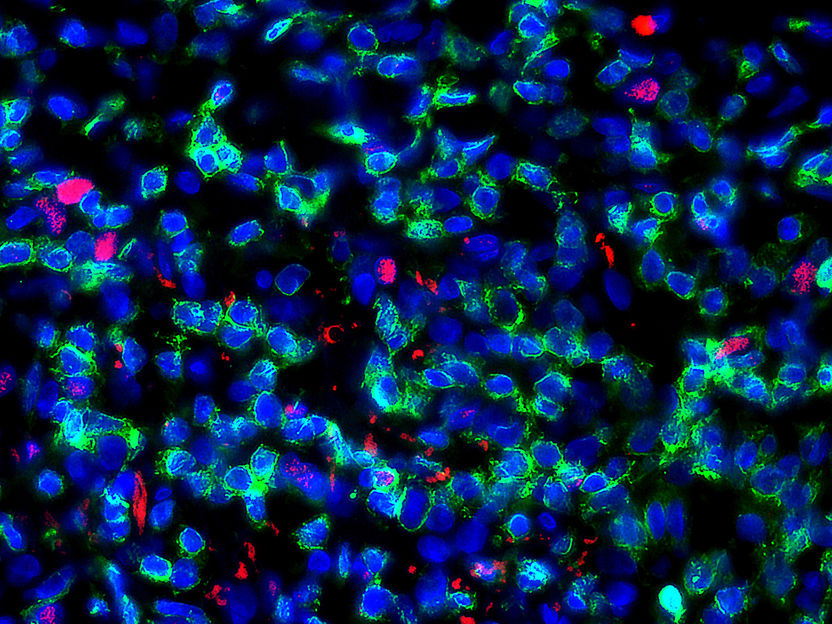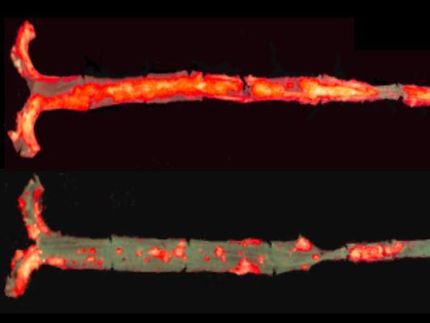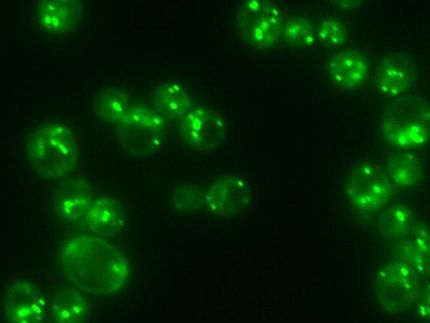Anemia: Baffling lab mystery leads to major red blood cell discovery
A bizarre result of a routine lab experiment has led researchers at the School of Medicine to an unexpected new way to trigger the production of red blood cells. This could represent a significant step forward in the battle against anemia , benefitting people with diabetes, people with kidney disease or cancer, and older people for whom anemia can become a chronic problem.
While more work needs to be done before the method could be used in people, the possibilities are tantalizing. For example, the approach could:
- allow doctors to turn on red blood cell production whenever necessary;
- be used on the battlefield to triage wounded soldiers until they could receive a blood transfusion; and
- be used to treat people who cannot receive blood transfusions because of religious beliefs.
About anemia
People with anemia – the most common blood disorder – lack sufficient red blood cells, which transport oxygen. People with anemia often experience fatigue and lack energy because their cells aren’t getting enough oxygen. There are many causes, including iron deficiency, vitamin deficiencies and diseases such as kidney disease and cancer. Anemia is particularly prevalent in older adults.
The UVA researchers, however, were not investigating anemia when they made their discovery. Instead, Thomas J. Braciale, MD, PhD, and his team members were looking into the role of dendritic cells in the lungs. Dendritic cells have traditionally been thought to be sensors of infection and inflammation, but a lab test involving the flu virus produced a bizarre effect in mice that ultimately revealed an entirely new aspect to the cells’ function.
Strange effect
After injecting mice with the flu virus and an antibody that blocked a certain molecule expressed by dendritic cells, the researchers discovered that the experiment had an unexpected effect: The mice’s spleens enlarged massively. The researchers were baffled, so they repeated the experiment, only to get the same results. “We did it again and I didn’t believe it, and we did it again and I didn’t believe it,” Braciale recalled. “I asked whether you needed to flu infect the mice when you injected this antibody. So the postdoc [a lab member] did the experiment, and he just injected the antibody without flu injecting the mice. Giant spleens. After much consultation, after talking with my colleagues in Pathology, we decided we were inducing stress erythropoiesis.”
Stress erythropoiesis is when the body produces red blood cells because of injury or other stress. In discovering an unexpected molecular trigger for the process, Braciale had found a switch he could flip to prompt red blood cell production.
“In the very basic way, what we’ve discovered is that the process of regulating stress in the body is mediated – certainly in part, at least – by these dendritic cells,” he explained. “And stress can be a variety of different stresses. It doesn’t have to be infection, it doesn’t have to be inflammation. It can be anemia. It can be hemorrhage. And these cells act to initiate this response that, until this report, there’s been really no evidence that these [dendritic] cells ever participate in making red blood cells .”
Findings published
Braciale has more work to do before researchers can begin testing the approach in people. However, he’s optimistic, based on his findings so far. “We’re very excited to see where this goes. We know that the same things can be done in humans in the following sense. There are mice called humanized mice. These are mice that are engineered so they have a human blood system. And if you inject these mice with this antibody, they’ll make red blood cells.”
The discovery has been described in an article in the Journal of Clinical Investigation.
Most read news
Organizations
Other news from the department science

Get the life science industry in your inbox
By submitting this form you agree that LUMITOS AG will send you the newsletter(s) selected above by email. Your data will not be passed on to third parties. Your data will be stored and processed in accordance with our data protection regulations. LUMITOS may contact you by email for the purpose of advertising or market and opinion surveys. You can revoke your consent at any time without giving reasons to LUMITOS AG, Ernst-Augustin-Str. 2, 12489 Berlin, Germany or by e-mail at revoke@lumitos.com with effect for the future. In addition, each email contains a link to unsubscribe from the corresponding newsletter.
More news from our other portals
Last viewed contents
BioPhausia focuses and sells OTC products to Meda for SEK 190 million
The Biotechnology Industry over 30 Billion in Revenue - ASEBIO presented its annual report "Informe ASEBIO 2009"

Vitamin B6 may help keep COVID-19's cytokine storms at bay - Vitamin B6 may help calm cytokine storms and unclog blood clots linked to COVID-19's lethality

Born to break - Mutation causes fragile bones
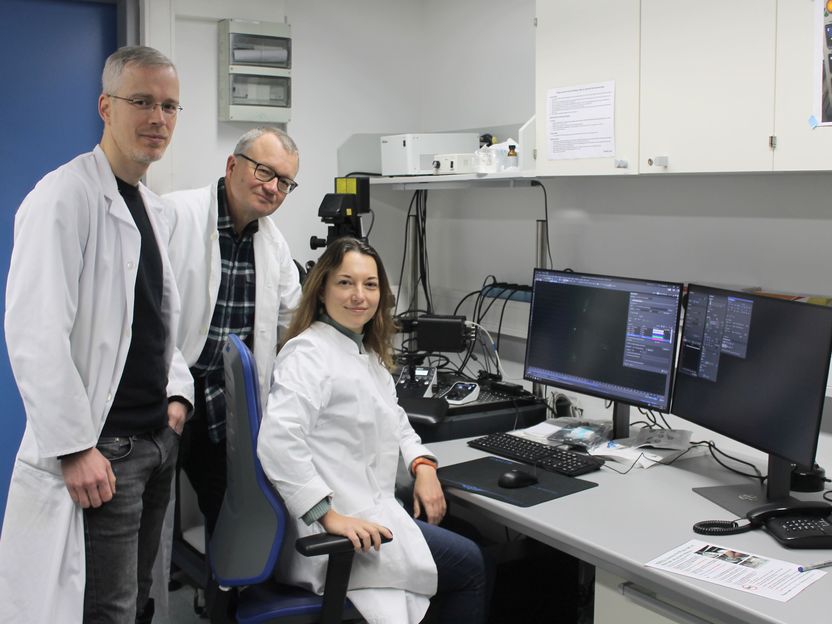
"Dormant" magnetosome genes in non-magnetic bacteria discovered

How injured nerves stop themselves from healing - Researchers have discovered an unexpected effect: It might open up new avenues for developing therapies after brain or spinal cord damage
Scil Proteins Signs Research Collaboration with the Martin Luther University Halle-Wittenberg for Gastrointestinal Tumors
Cotton fibres instead of carbon nanotubes

3D-printed pills with desired drug release – a step upwards in medication - Funny looking pills are not a design gimmick, they can release medication in a desired time regime!

Powerful protein promotes post-injury regeneration and growth of injured peripheral nerves
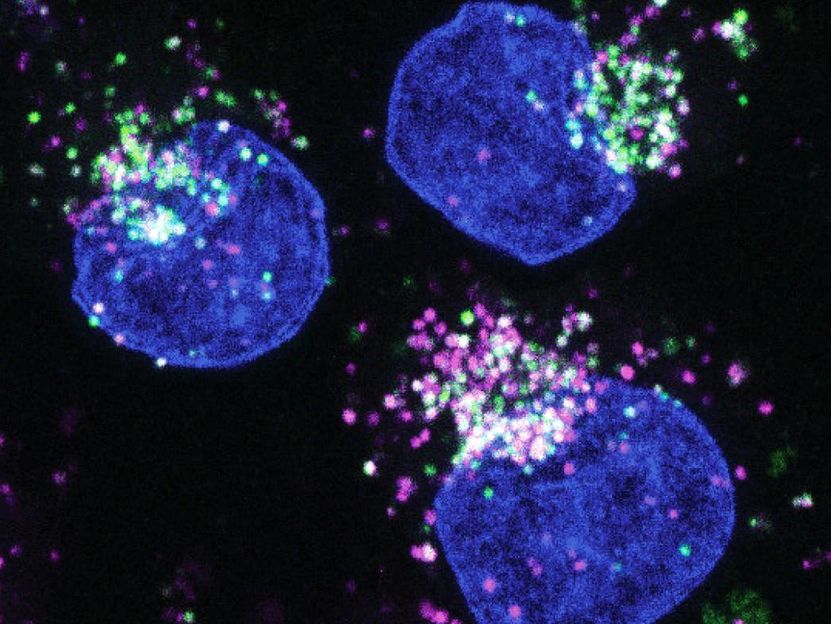
Breaking down proteins: How starving cancer cells switch food sources
